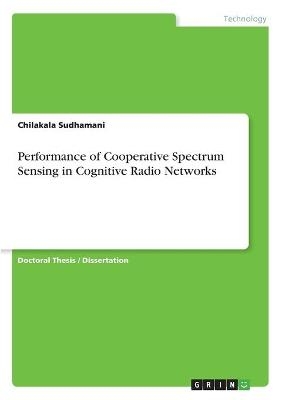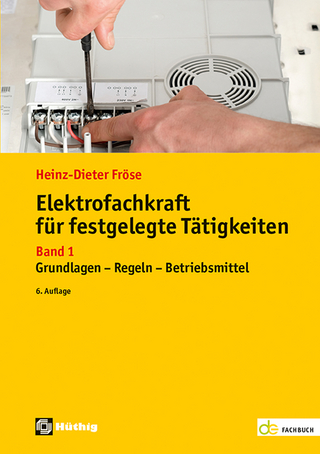
Performance of Cooperative Spectrum Sensing in Cognitive Radio Networks
Seiten
2020
|
20001 A. 1. Auflage
GRIN Verlag
978-3-346-26702-3 (ISBN)
GRIN Verlag
978-3-346-26702-3 (ISBN)
- Titel nicht im Sortiment
- Artikel merken
Doctoral Thesis / Dissertation from the year 2020 in the subject Engineering - Communication Technology, grade: A, , language: English, abstract: Cooperative spectrum sensing technique is used to maximize the utilization of unused licensed spectrum. As the cooperation among the secondary users increases the detection performance increases, which increases the average channel throughput and energy efficiency but it depends on the number of cooperative secondary users, fusion rules, channel conditions and detection threshold. In this thesis average channel throughput, energy consumption and energy efficiency are estimated for variable number of secondary users and detection thresholds using hard fusion rules i.e. AND, OR and MAJORITY fusion rules. From the results it has been observed that the performance of AND fusion rule is better at low detection thresholds and for less number of secondary users. The performance of OR fusion rule is better at high detection thresholds and for large number of secondary users. The performance of MAJORITY fusion rule follows the performance of AND fusion rule at low detection thresholds and it follows the performance of OR fusion rule at high detection thresholds.However as the number of cooperative secondary users increases the energy required for spectrum sensing and reporting sensing results to the fusion center increases, which increases the energy consumption and reduces the energy efficiency. Therefore energy efficiency can be improved by maximizing the average channel throughput or by minimizing the energy consumption. To minimize the energy consumption in cooperative spectrum sensing, optimization technique has been proposed in this thesis and it is used for further improvement of energy efficiency. With this optimization technique, optimal number of cooperative secondary users are derived by maximizing the energy efficiency using AND and OR fusion rules but not with MAJORITY fusion rule. Because it is very difficult to estimate the optimal number of cooperative secondary users using MAJORITY fusion rule, so optimization of final decision threshold was proposed in the existing methods to maximize the energy efficiency using MAJORITY fusion rule. Therefore AND and OR fusion rules are used in this work to optimize the number of cooperative secondary users.
| Erscheinungsdatum | 15.12.2020 |
|---|---|
| Sprache | englisch |
| Maße | 148 x 210 mm |
| Gewicht | 258 g |
| Themenwelt | Technik ► Elektrotechnik / Energietechnik |
| Schlagworte | Cooperative spectrum sensing • CooperativeSpectrumSensing • Fusion Rules • FusionRules • Optimization of Secondary Users • OptimizationofSecondaryUsers • probabilityofdetection • Probability of Detection • Probabilityoffalsealarm • Probability of False Alarm • Spectrum Sensing Techniques • SpectrumSensingTechniques |
| ISBN-10 | 3-346-26702-4 / 3346267024 |
| ISBN-13 | 978-3-346-26702-3 / 9783346267023 |
| Zustand | Neuware |
| Haben Sie eine Frage zum Produkt? |
Mehr entdecken
aus dem Bereich
aus dem Bereich
Technologie – Berechnung – Klimaschutz
Buch | Hardcover (2023)
Hanser (Verlag)
39,99 €


